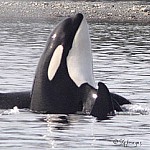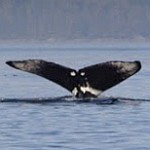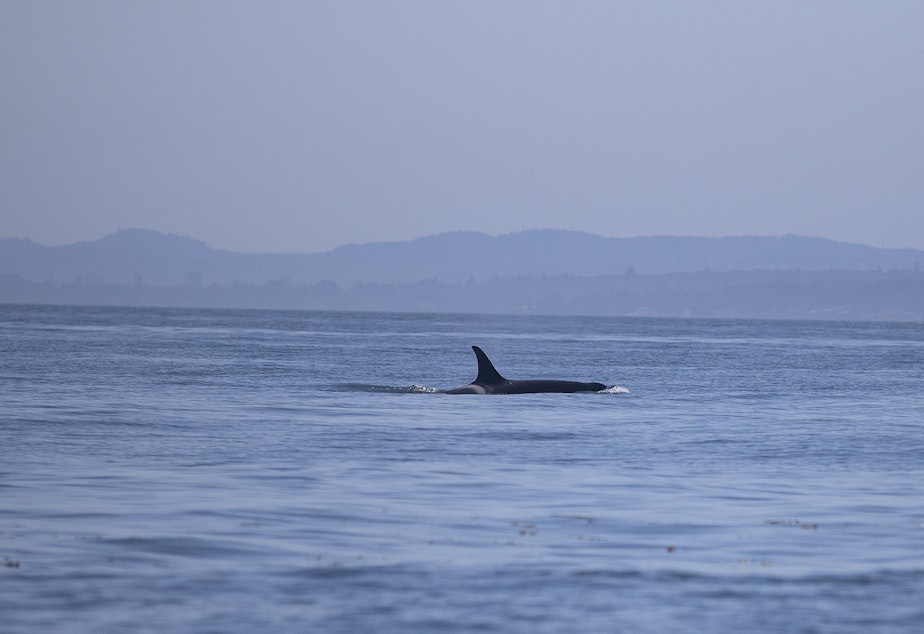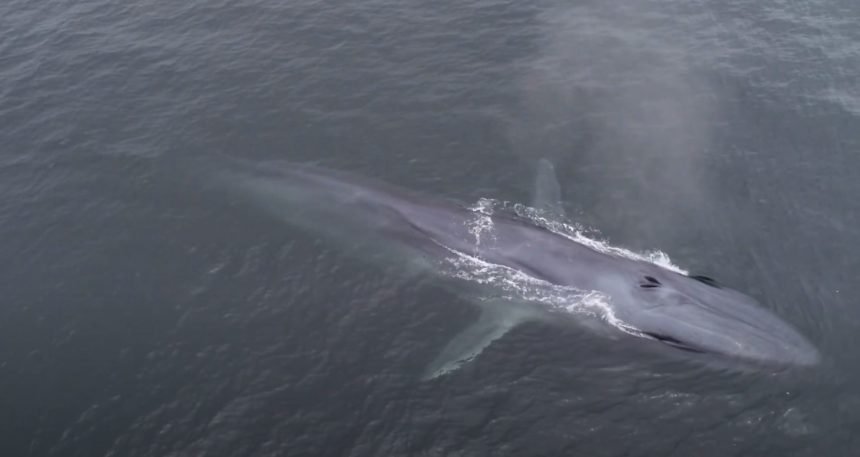Humpback Whale Entanglements!
Similar to our previous publication, the majority of sighting reports received this past week were of Humpback whales in upper Georgia Strait and in Sutil Channel. With a definite increase in the number of Humpbacks in those waterways (and other waterways around BC), there will be an increase in whale entanglements. Last weekend on July 25 and 26, three Humpback whales were reported entangled. Our cover image shows one Humpback whale nicknamed “Checkmate” with polypropylene rope (polyline) around its body. The DFO disentanglement crew were unsuccessful in freeing the whale of the rope. However, the DFO team was successful the next day in removing approximately 200 feet of rope from a Humpback calf -this is after 10 hours of work, staying with the whales as they swam about 70-80 km throughout the day. Find out more about the entanglements in the Magazine section.
For those of you who set crab traps and prawn traps, you can decrease the chances of whale entanglements in your gear by using rope/lines that do not float, such as polyline. Know the depth of the water where you are setting your traps and ensure your line is weighed down properly without excessive line in the water. ANYONE who sees an entangled whale, dolphin, or porpoise can report it directly to the Department of Fisheries and Oceans at 1-800-465-4336.
Of note is on the morning July 23, Southern Resident Orca were travelling southward in Discovery Passage and passed Campbell River. The group consisted of whales from K-pod as well as L-pod, and the group included about 20 members. It is unclear where they went after entering Georgia Strait.
Boaters, please use caution on the water. Remember N.E.W.S. when you see a whale, meaning put your boat in NEUTRAL, ENJOY the view, WAIT till the whales are at a fair distance, and then SLOWLY leave the scene.
The Federal Government (DFO) has issued the following statement about watching whales in the wild: “To address disturbance in the presence of whales, a mandatory 400-metre vessel approach distance for all killer whales is in effect starting June 1, 2020 in all southern British Columbia coastal waters between Campbell River and just north of Ucluelet. The Marine Mammal Regulations continue to remain in effect year-round, including maintaining a minimum 200 metre approach distance from all killer whales in Canadian Pacific waters other than described above, and 100 metres for other whales, porpoises and dolphins OR 200 metres when the animal is in resting position or with a calf.”
WOWs works throught the year, so please continue to keep your eyes open, and report your sightings to us.
Archive Explorer navigates 21,000+ Cetacean Sightings, images, videos and audio recordings.
*Recommended for desktop browsers and newer mobile devices
Archive Explorer dives into the Coastal Cetacean world. View Cetacean sighting locations, photos and videos:
- All species including Orca, Humpback, Grey Whale or Dalls Porpoise
- Follow the endangered Southern Residents Orca in the Salish Sea
- Search for encounters with T002C2 Tumbo
- Witness a close-up Orca encounter video in Port Alberni harbour
- Follow the T010s Transients as they hunt and travel the inside passage
- Track "KC", the ever popular Humpback's movements
- Locate any of 12,000 named locations on the BC and WA State coast
- Print custom sighting reports and maps (Coming Soon)
Archive Explorer Help Page explains many advanced functions
Send your Comments and Questions to: Archive Explorer Feedback
COMING SOON: Our New Archive Dataset Interface is in the works, but we don't want to hold up any ongoing research.
To access 21,000+ sightings in our database to November issue #2019-049 in a downloadable csv file for use in a spreadsheet, please Click Here.
read on
For the seventh consecutive year, Polar Bears International (PBI) will host Arctic Sea Day on July 15 to raise awareness for the melting Arctic. According to PBI, the Arctic is warming twice as fast as the rest of the planet, causing the sea ice to melt….
read on
With only about 400 such whales left in the world, every individual is known to researchers and cataloged….
read on
Members of the endangered J pod have been swimming back and forth near the San Juan Islands and Vancouver Island since July 4. The southern resident orcas have spent less and less time in the Salish Sea, where they are summer residents, due to a lack of food in recent years….
read on
read on
These whales, known as beaked whales for their long, beaked dolphin-like nose, are so elusive that there have been just four beaked whales documented in Maine waters in the past 20 years….
read on








